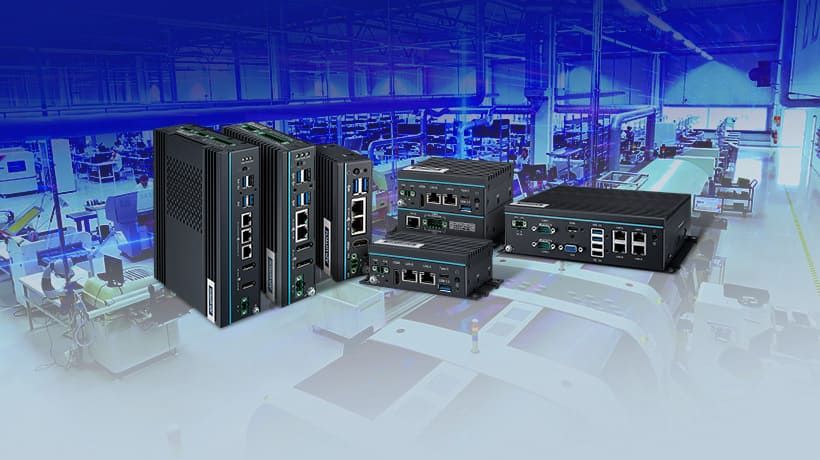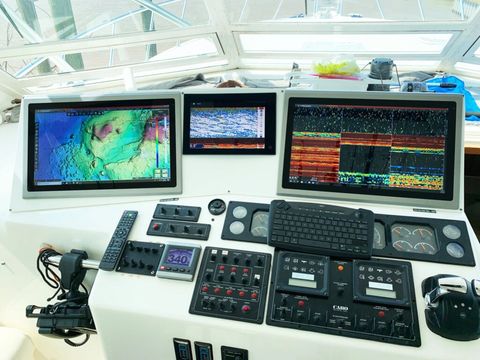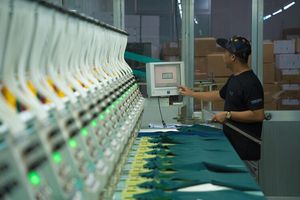Explore the Best Industrial PC: Guide, Facts, and Insights
An industrial PC, or IPC, is a computer specifically engineered to operate reliably in harsh, demanding environments where a standard consumer or office PC would fail. These environments include manufacturing floors, warehouses, transportation systems, and outdoor installations. Unlike a consumer PC designed for a clean, climate-controlled office, an IPC is built with features to withstand extreme temperatures, dust, moisture, vibrations, and electromagnetic interference.
The core purpose of an IPC is to provide a robust and dependable computing platform for industrial automation solutions. They serve as the "brain" for automation systems, controlling machinery, collecting data from sensors, and running specialized software for process control, machine vision systems, and human-machine interfaces (HMIs). This specialized design ensures continuous, mission-critical operation, minimizing downtime and protecting valuable industrial processes.
Why Industrial PCs Matter Today
Industrial PCs are an essential component of modern manufacturing and the broader industrial sector, particularly with the ongoing push toward Industry 4.0. This movement, which focuses on smart factories and interconnected systems, relies heavily on data collection, real-time analytics, and automated control—all functions that require rugged, reliable computing power.
These specialized computers solve several critical problems that standard PCs can't handle. In a factory setting, a computer failure can halt an entire production line, costing thousands of dollars per hour. Industrial PCs are built for 24/7 continuous operation, with passive cooling systems (fanless industrial computer designs) and solid-state drives (SSDs) to prevent failures from dust, vibration, and mechanical wear. Their ability to operate in wide temperature ranges, from freezing cold to scorching heat, makes them suitable for diverse applications, from food processing plants to outdoor utility stations.
The applications of IPCs are widespread and impact many industries:
Manufacturing Automation: They control robotic arms, assembly lines, and CNC machines.
Machine Vision: They analyze high-speed camera data for quality control, instantly spotting defects on a production line.
Energy and Utilities: They monitor and control power grids, substations, and renewable energy facilities.
Transportation: They are used in traffic management systems, railway signaling, and onboard vehicle computers.
Logistics and Warehousing: They power systems for inventory management and automated guided vehicles (AGVs).
By providing a stable platform for these critical functions, IPCs enhance productivity, improve product quality, and significantly reduce the total cost of ownership over their long lifecycle.
Recent Updates and Trends
The industrial PC market is continuously evolving, with several key trends shaping its development over the past year.
Edge Computing and AI Integration: A major trend is the integration of artificial intelligence and machine learning at the "edge" of the network, right on the factory floor. IPCs are becoming more powerful, with specialized processors and GPUs capable of running AI algorithms for predictive maintenance, real-time quality control, and advanced robotics without needing to send data to the cloud. This reduces latency and improves efficiency.
Increased Connectivity (5G and IIoT): The rollout of 5G networks and the proliferation of Industrial Internet of Things (IIoT) devices are driving the need for IPCs with advanced connectivity options. IPCs now frequently include multiple Ethernet ports, 5G modems, and Wi-Fi 6 capabilities to handle the massive influx of data from connected devices and enable seamless communication between machines and systems.
Enhanced Cybersecurity: With more systems becoming interconnected, industrial cybersecurity has become a paramount concern. New IPCs and industrial control systems are being designed with robust security features, including hardware-based encryption, secure boot processes, and remote management tools to protect against cyber threats and unauthorized access. This is a direct response to the increasing number of cyberattacks targeting industrial infrastructure. For instance, in 2024, Siemens introduced a new series of industrial PCs with enhanced security features for smart manufacturing applications.
Laws and Policies
The design, deployment, and use of industrial PCs are subject to various international and national regulations, particularly those related to safety and security. These standards ensure that industrial control systems operate reliably and safely, protecting both workers and the environment.
Functional Safety (IEC 61508): This is a critical international standard for the functional safety of electrical, electronic, and programmable electronic safety-related systems. It provides a framework for designing systems to prevent dangerous failures. Industrial PCs used in safety-critical applications, such as emergency shutdown systems in a chemical plant, must adhere to these standards to achieve a specific Safety Integrity Level (SIL).
Cybersecurity Standards (IEC 62443): This series of standards addresses the cybersecurity of industrial automation and control systems. It provides a structured approach to designing secure systems and managing security risks throughout the lifecycle of an IPC. Compliance with these standards is becoming increasingly important as industrial networks become more interconnected.
Electromagnetic Compatibility (EMC): IPCs must comply with regulations like the European EMC Directive to ensure they do not interfere with other electronic equipment and are not susceptible to interference from outside sources. This is crucial in noisy industrial environments with high levels of electromagnetic activity.
Compliance with these policies is not just a legal requirement but a fundamental aspect of responsible engineering and a key differentiator for manufacturers of industrial-grade components and equipment.
Tools and Resources
When selecting an industrial PC, several tools and resources can help engineers and decision-makers make an informed choice.
Online Product Selectors and Configurators: Many manufacturers of IPCs offer online tools that allow users to configure a system based on specific requirements, such as operating temperature, shock resistance, and I/O ports. These tools help narrow down the options and ensure the selected PC meets the application's needs.
Certification and Standards Databases: Websites of organizations like the International Electrotechnical Commission (IEC) provide detailed information on standards like IEC 61508 and IEC 62443. These resources are essential for verifying a product's compliance and suitability for safety-critical applications.
Industry Blogs and Whitepapers: Reputable industrial automation and technology blogs often publish technical articles and whitepapers that compare different IPC models, discuss new technologies, and provide best practices for deployment. These resources offer valuable insights and expert advice.
Online Forums and Communities: Platforms like Reddit's r/PLC or professional forums for automation engineers can be a great place to ask questions and get real-world advice from peers who have experience with different embedded systems and industrial computing hardware.
Frequently Asked Questions
How is an industrial PC different from a consumer PC?
The primary difference lies in their design and components. A consumer PC is designed for a clean, stable environment and uses components optimized for performance and cost. An industrial PC is ruggedized, built with a fanless design, and uses industrial-grade components that can withstand extreme temperatures, dust, vibration, and shock. Their enclosures are often sealed to protect against water and particles.
What does "fanless" mean for an industrial PC?
A fanless design means the PC uses passive cooling methods, like heat sinks and a specially designed chassis, to dissipate heat instead of relying on a fan. This is crucial in industrial settings where dust, oil mist, or other contaminants could clog a fan and cause the system to overheat and fail. A fanless design eliminates a major point of failure and makes the PC a sealed unit.
Why are industrial PCs more expensive than consumer PCs with similar specifications?
The higher cost comes from the specialized, high-quality components and robust engineering required to ensure long-term reliability in harsh environments. This includes industrial-grade motherboards, wider temperature range components, sealed enclosures, and extensive testing and certification to meet strict industrial standards. This upfront investment leads to a lower total cost of ownership due to reduced maintenance and fewer costly production downtimes.
Can I use a regular PC for my industrial application?
It is generally not recommended. A regular PC will likely fail prematurely due to dust, vibration, or temperature fluctuations, leading to unpredictable downtime and potential data loss. The lack of industrial-grade I/O ports and the inability to handle a 24/7 duty cycle also make it unsuitable for most critical industrial applications.
Conclusion
Industrial PCs are far more than just "tougher" versions of a desktop computer. They are purpose-built machines that serve as a critical foundation for modern industrial operations. Their rugged design, combined with advanced features for connectivity and data processing, enables the automation, efficiency, and reliability that define the smart factories of today and tomorrow. As industries continue to embrace digitalization and the principles of Industry 4.0, the importance of robust and secure industrial computing solutions will only continue to grow. Understanding the role, benefits, and technical specifications of these devices is essential for anyone involved in manufacturing, automation, or critical infrastructure management.





